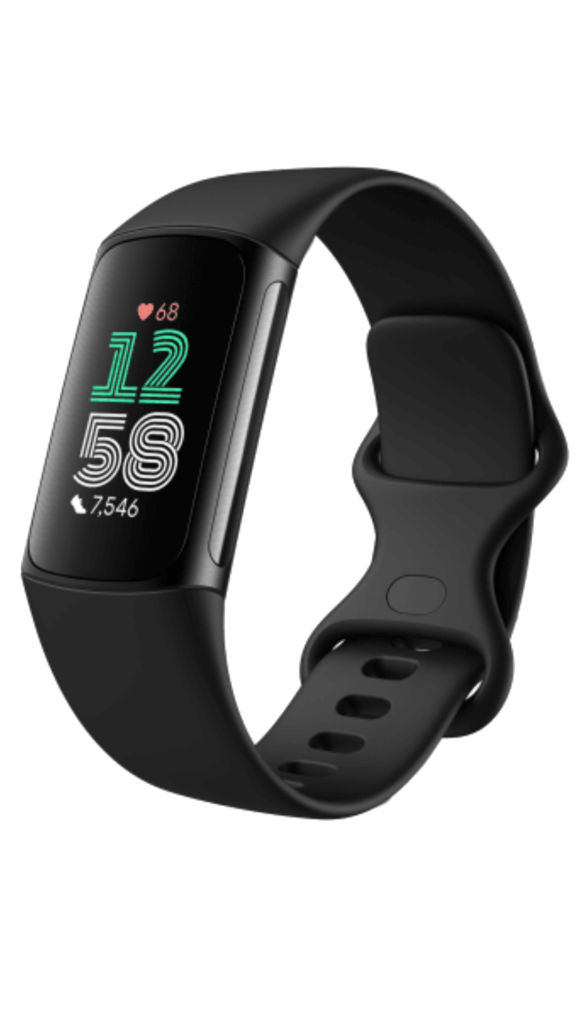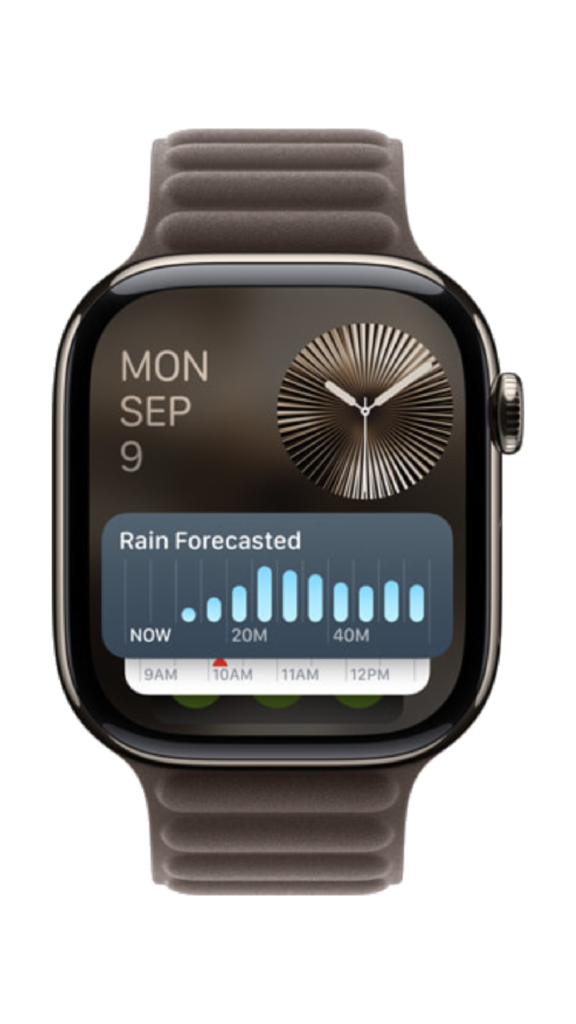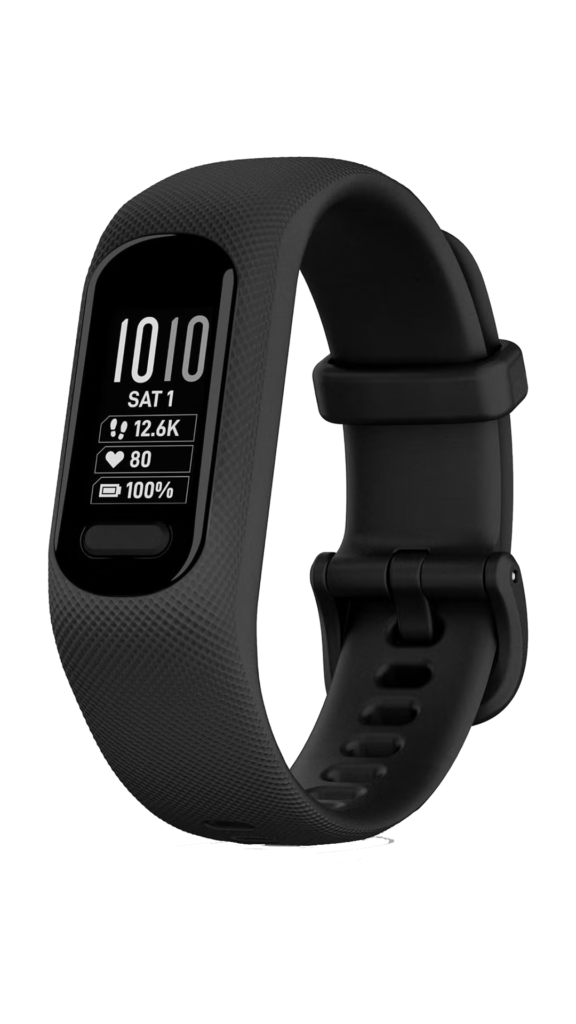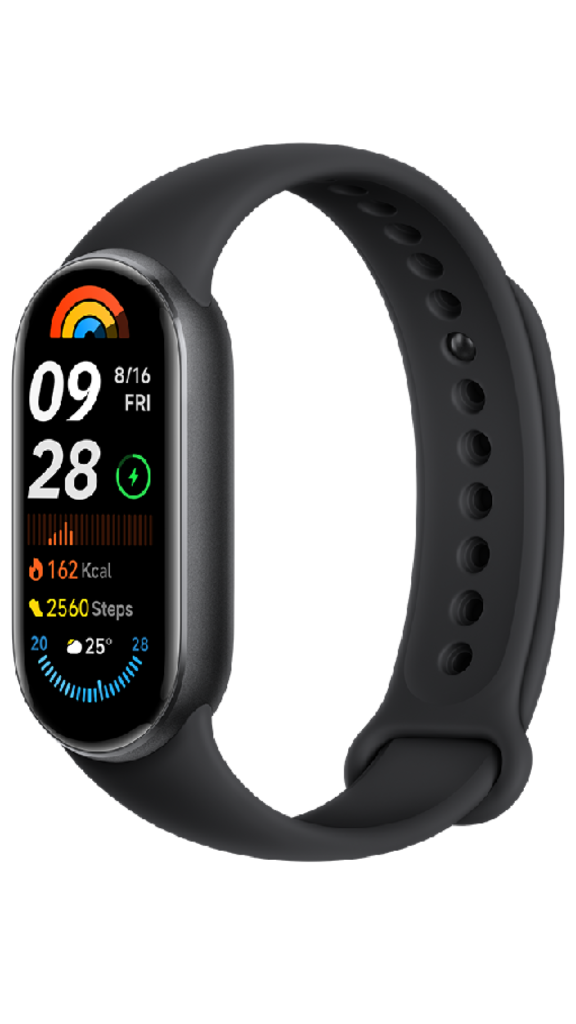This page contains affiliate link(s). When you buy through our links, we may earn a commission
[Top 5] Best Fitness Trackers 2024
A state-of-the-art fitness tracker can help you stay on track with your workouts and get a better night’s rest. These technologies make it easier to exercise effectively while complimenting your own style and lifestyle choices by reducing guesswork, gamifying wellness, and providing vital data. So, we’ve got recommendation for the top 5 Best Fitness Trackers you can Buy in 2024.





Garmin Venu 3
A near-perfect balance of smartwatch and health trackerA near-perfect balance of smartwatch and health tracker
Number 1. Fitbit Charge 6
A brilliant tracker, now with more Google
The $159 Fitbit Charge 6 is an improvement over its predecessor and includes features like a companion app that is more user-friendly, new Google lifestyle applications, and Bluetooth connectivity for exercise equipment. With a weight of just 30 or 37 grams and an elegant style reminiscent of the Charge 5, this fitness tracker delivers all the bells and whistles of the more costly Fitbit Sense 2.
The tracking statistics and alerts are easily legible on the 1.04-inch OLED screen, albeit it takes a little longer to wake up than expected. Features like passive health monitoring, sleep tracking, and an electrocardiogram (ECG) function that examines heart rhythm in just 30 seconds are noteworthy. The device has no built-in playback, but it does handle wireless payments with Google Wallet and music controls through compatible apps.
Despite some connectivity troubles while wearing it with tight straps, it includes 41 exercise modes and GPS tracking, and it does not limit stair-climbing statistics since it does not have an altimeter. In addition to being able to connect with certain pieces of exercise equipment via Bluetooth, the Charge 6 has heart rate notifications.
In addition, there is a free six-month trial of Fitbit Premium, which extends the experience with integrated health information and guided exercises for $9.99 per month. If you’re a casual fitness fanatic looking for full monitoring without the heft of a conventional smartwatch, the Charge 6 is a great pick because to its combination of everyday utility and gym-friendly features.
Number 2. Apple Watch Series 10
Apple’s flagship smartwatch is sleeker than ever
Series 10 Apple Watches are slimmer and lighter than previous models, and they have larger displays for a more modern and comfortable fit on the wrist. The greatest Apple Watch to date has a color palette to die for, faster charging, and the ability to detect sleep apnea. With cellular connectivity, the price of the Apple Watch 10 jumps to $499 from $399 for the 42mm model. Prices range from $429 for the base model to $529 for the cellular version of the larger 46mm device. These prices reflect the aluminum models.
The S10 chip improves the device’s visual clarity, and the 2,000-nit LTPO 3 display automatically adjusts to a 1Hz refresh rate. With rapid charging, you can go from zero to eighty percent in thirty minutes, and the battery life is about eighteen hours. With a weight of 30g for the 42mm and 36.4g for the 46mm, the Series 10 is a little bigger than its predecessor, the Series 9, but it’s thinner and has a better ergonomic shape.
Along with its comprehensive suite of sensors—including heart rate, electrocardiogram, water temperature, and depth gauge—and its NFC compatibility, this device also boasts exceptional water and dust resistance (IP68). Notably, the Series 10 addresses current legal concerns by introducing sleep apnea diagnosis utilizing accelerometer data instead than the blood oxygen sensor. Users of considerably earlier versions, such as Series 4, may mostly benefit from the incremental upgrades, while the watch’s appearance is subtly updated with a glossy finish and reduced weight. In sum, Apple’s smartwatch lineup has undergone a subtle but significant development with the Series 10.
Number 3. Garmin vivosmart 5
A fitness tracker built with data nerds in mind
Despite its $150 price tag, the Garmin Vivosmart 5 has a ton of fancy health and fitness tracking capabilities that are usually reserved for more expensive models. This compact device offers a variety of useful capabilities, such as continuous heart-rate monitoring, blood oxygen levels, sleep analysis, and energy tracking with Garmin’s Body Battery score. With moderate usage, it boasts nearly a week of battery life. The design is practical, with a monochrome touchscreen and one navigation button; nevertheless, the reflecting screen makes it difficult to see the text. The display doesn’t have an always-on function, but you can change the face of the watch.
When activated through the Garmin Connect app, the Vivosmart 5’s ability to autodetect activities like walking and running is one of several sports profiles it offers. While linked GPS and associated phones provide typically accurate heart rate monitoring, it may be slightly slower than chest straps. Sleep metrics provide information about the amount and quality of sleep, and they are made even better with continuous blood oxygen monitoring, but it does drain the battery life a bit.
While the Vivosmart 5’s music playback options and helpful notifications are great, the level of personalization is heavily dependent on the Garmin Connect app, which might be too much for certain users. Despite its simple design and lack of GPS, this tracker is perfect for health-conscious exercisers looking for a full-featured health tool.
Number 4. Xiaomi Smart Band 9
Feature-packed fitness tracking for less
In spite of the lack of official availability in the US, the Xiaomi Smart Band 9—which is priced at around $60 through Amazon global importers—offers an enticing combination of affordability and performance. With this new model, the brand continues its tradition of producing high-quality fitness trackers that can hold their own against more expensive brands. Standard metrics like steps, workouts, sleep, heart rate, and blood oxygen levels are now even more accurately tracked by the Smart Band 9, thanks to a sensor that is 16% more precise. Impressive battery life—up to 21 days on typical settings—and fast charging (approximately an hour) round out the package.
Despite the always-on function wishing it were brighter, the 1.62-inch AMOLED screen improves visibility. You might not even notice it on your wrist because of how light it is—weighing in at a mere 16g. Although it monitors more than 150 actions, it is dependent on a linked phone due to its lack of GPS and NFC payment capabilities. Thanks to updates, the Mi Fitness app is now much easier to use and integrates with services like Google Fit and Strava.
On the other hand, there are a few things to think about, such as how long the TPU strap will last and how the attachment mechanism may prevent inadvertent removal. If you’re looking for affordable fitness tracking without advanced features, the Smart Band 9 is a great pick. However, current Xiaomi users may not see much reason to upgrade.
Number 5. Garmin Venu 3
A near-perfect balance of smartwatch and health trackerA near-perfect balance of smartwatch and health tracker
In response to rivals like the Apple Watch Series 9, Garmin has introduced the $449,99 Venu 3, which combines smartwatch capabilities with sport-oriented functionalities in an enticing way. It has a stainless steel bezel and a fiber-reinforced polymer case, which gives it a less quality feel than competing aluminum models. It is available in two sizes, 45mm and 41mm. Despite the fact that not everyone will be fond of the cluttered watch faces, the data visibility of the vivid AMOLED display makes it stand out.
Garmin has good notifications and access to voice assistants, but its app ecosystem isn’t as robust as Samsung’s or Apple’s, so new users will have a learning curve. Although it can be annoying to not have a dedicated home key, the user interface does feature three functioning buttons for activity access and settings.
Electrocardiogram (ECG), heart rate, and the one-of-a-kind Body Battery feature that provides insights on energy levels throughout the day are the health tracking features that stand out. The fact that it tracks sleep and offers a variety of workouts, as well as a comprehensive sleep score and a coach, makes it more appealing. Claimed to last 14 days in smartwatch mode, the remarkable battery life makes it perfect for sleep tracking without the need for frequent recharges.
Although it has its advantages, app-centric consumers might go elsewhere for their smartphones because the Venu 3 doesn’t have any apps and has a less refined interface. In sum, the Venu 3’s extensive feature set and exceptional battery life will appeal to fitness and sleep tracking enthusiasts.
